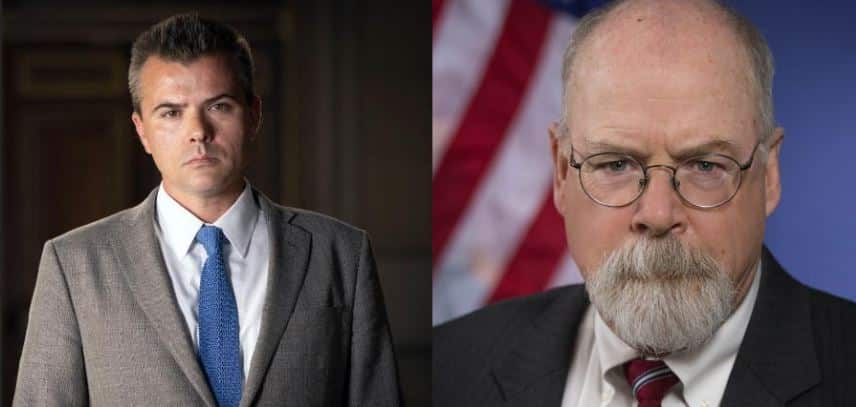Yesterday, a filing by Special Counsel John Durham revealed that Igor Danchenko, who worked as a key contributor to the discredited Steele dossier funded by the Clinton campaign, was later put on the FBI payroll as an informant. The disclosure rocked Washington and raised additional questions of the FBI’s eagerness to pursue any allegations against Donald Trump despite being warned that the dossier appeared to be a vehicle for Russian disinformation.
Danchenko is facing with five counts of lying to the bureau during that relationship. His trial is scheduled for next month in federal court in Alexandria, Virginia.
The filing states that “In March 2017, the FBI signed the defendant up as a paid confidential human source of the FBI. The FBI terminated its source relationship with the defendant in October 2020.”
The news shocked many of us who have closely followed the Russian collusion controversy for years. The FBI showed a zeal to investigate Trump and his campaign that seemed to border on the blind obsessive. It was not simply with the Steele dossier. On the baseless Alfa Bank allegations (also pushed by Clinton campaign through friends at the FBI) the supervisory agent for the FBI’s Trump-Russia probe, Joe Pientka, sent a note to FBI special agent Curtis Heide, stating: “People on the 7th floor to include Director are fired up about this server.” Pientka then messaged Heide: “Did you guys open a case? Reach out and put tools on?” That description of the apparent eagerness of then-FBI Director James Comey and others only magnifies concern over the bureau’s alleged bias or predisposition on the Trump investigation. It was the same eagerness that led the FBI to pursue the Russian investigation for years despite being warned early by American intelligence that the Steele dossier contained not just unsupported allegations but possible Russian disinformation.
Indeed, Danchenko’s possible connections to Russian intelligence have been raised as a matter of concern. Indeed, the filing states “During his January 2017 interview with the FBI, the defendant initially denied having any contact with Russian intelligence or security services but later — as noted by the agents, contradicted himself and stated that he had contact with two individuals who he believed to be connected to those services.”
What is particularly concerning is that the FBI also had former British spy Christopher Steele, on its payroll. Steele then assembled his dossier under the funding of the Clinton campaign which repeatedly denied such funding to the media. This money was funneled through the law firm of Perkins Coie and the campaign’s general counsel, Marc Elias. (The Federal Election Commission (FEC) fined the Democratic National Committee and Hillary Clinton’s 2016 campaign for violating election rules in hiding that funding).
So the FBI cut off Steele as a paid source after he allegedly worked with the media to spread these unproven claims. It then turned around and hired his principle source for the dossier.
The filing also states that Danchenko discussed an interest in obtaining classified information for possible sale to the Russians.
As has been publicly reported, the defendant was the subject of an FBI counterintelligence investigation from 2009 to 2011. In late 2008, while the defendant was employed by a prominent think tank in Washington, D.C., the defendant engaged two fellow employees about whether one of the employees might be willing or able in the future to provide classified information in exchange for money.
According to one employee (‘Employee-1’), the defendant believed that he (Employee-1) might be in a position to enter the incoming Obama administration and have access to classified information. During this exchange, the defendant informed Employee-1 that he had access to people who would be willing to pay money in exchange for classified information. Employee-1 passed this information to a US government contact, and the information was subsequently passed to the FBI.
Based on this information, the FBI initiated a ‘preliminary investigation’ into the defendant. The FBI converted its investigation into a ‘full investigation’ after learning that the defendant (1) had been identified as an associate of two FBI counterintelligence subjects and (2) had previous contact with the Russian Embassy and known Russian intelligence officers.
The “prominent think tank” appears to be the Brookings Institution. I have previously written about the prominent role of Brookings in spreading the Russian collusion claims and hiring an array of people who played critical roles in these investigations. That also included former FBI general counsel James Baker. For some, it seemed like not just friends but “friends with benefits.” It seems that everyone in this scandal was six degrees from Brookings.
Reprinted with permission from JonthanTurley.org.


